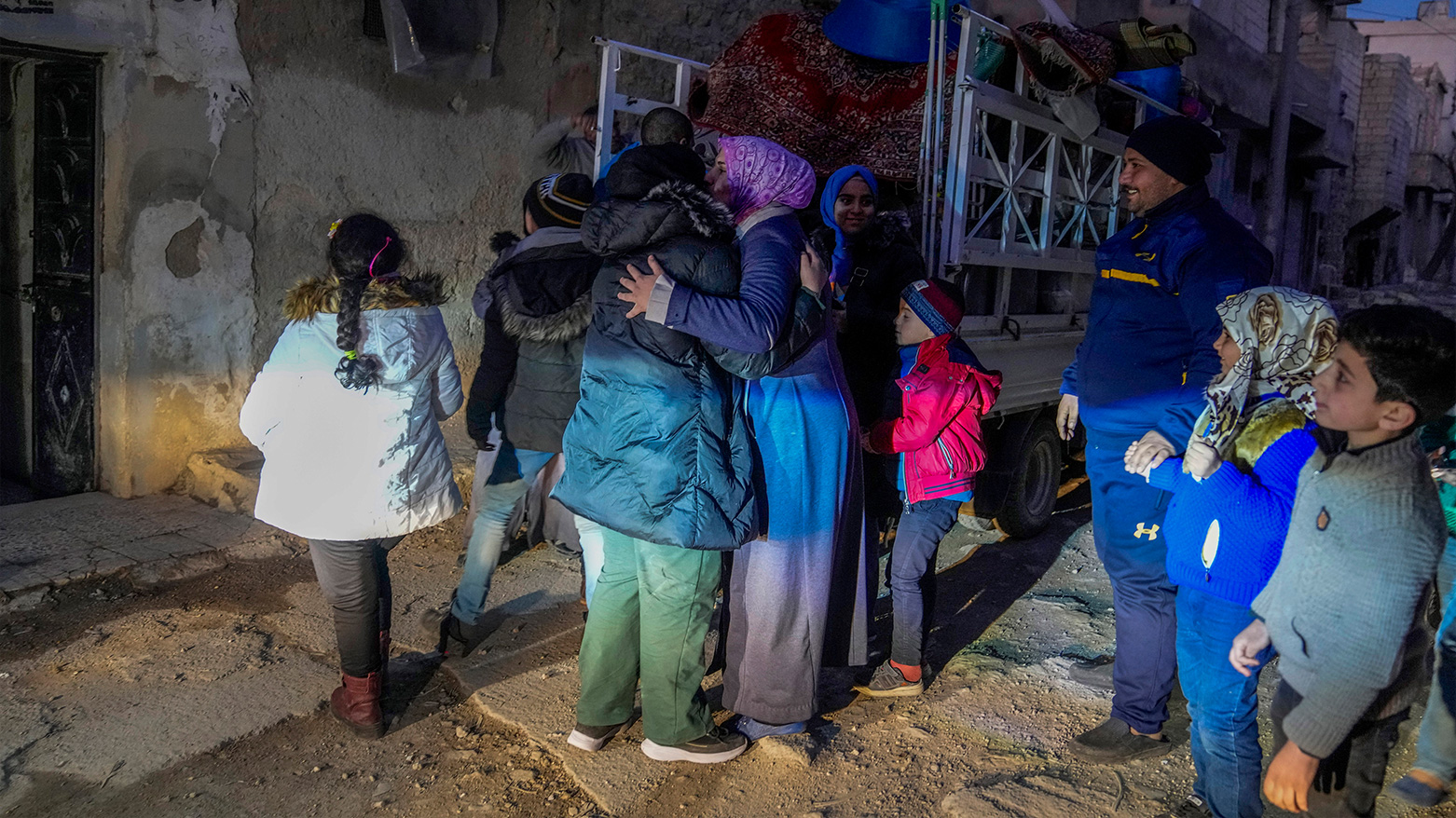UNHCR Reports Mass Returns, Displacement in Syria
The report highlights that, while many are eager to return home, uncertainty looms over safety, limited livelihood opportunities, and damaged infrastructure.

ERBIL (Kurdistan24) – The ongoing crisis in Syria has entered a critical phase as new figures from the United Nations High Commissioner for Refugees (UNHCR) reveal a significant movement of refugees and internally displaced persons (IDPs).
As of Feb. 13, 2025, an estimated 279,620 Syrians have returned to their homeland since December 2024, despite continued concerns over security, infrastructure, and basic services.
According to UNHCR’s latest report, refugees are returning from neighboring countries, including Türkiye, Lebanon, Jordan, Iraq, and Egypt.
The report highlights that, while many are eager to return home, uncertainty looms over safety, limited livelihood opportunities, and damaged infrastructure.
As part of the Facilitated Voluntary Return and Transport Assistance program, UNHCR has provided free transportation for the most vulnerable returnees.
This initiative has been particularly active in Jordan and inside Syria, where coordinated cross-border efforts have enabled thousands to return safely.
Widespread Displacement Continues
Despite the influx of returnees, displacement inside Syria remains an alarming issue.
The IDP Taskforce reports that over 617,000 individuals have been newly displaced due to hostilities between November and December 2024.
The total number of internally displaced persons in Syria now exceeds 7.4 million, making it one of the most pressing humanitarian crises in the region.
Certain areas, such as Daraa (Rural Damascus), have seen an increase in displaced families, particularly those fleeing ongoing violence in the north, including Menbij (Aleppo).
UNHCR has ramped up its support through 102 Community Centers (CCs), offering psychological services, legal aid, and child protection initiatives in affected regions like Rural Damascus and al-Hasakeh.
International and Regional Cooperation
The crisis has prompted high-level ministerial discussions across the region.
Following meetings in Aqaba (December 2024) and Riyadh (January 2025), France hosted a major conference in Paris, where President Emmanuel Macron and other international leaders reaffirmed their commitment to facilitating the voluntary return of refugees.
The conference underscored the necessity of economic recovery and property rights restoration as key components of a sustainable return process.
Challenges and Hurdles to Reintegration
Economic hardship remains a significant barrier to successful reintegration.
The UNHCR’s Regional Survey on Syrian Refugees’ Perceptions and Intentions on Return (RPIS) identified economic challenges as one of the primary reasons many refugees hesitate to return.
To address these concerns, UNHCR has expanded livelihood support programs, distributing agricultural tools, solar panels, and core relief items to returnees.
The facilitation of returns has been met with logistical challenges.
In Türkiye, the voluntary return process continues at key border crossings such as Bab al-Hawa and Jarablus, with over 81,500 individuals returning since December.
Meanwhile, in Lebanon, UNHCR is working closely with authorities to provide shelter, basic assistance, and referral health care services for the increasing number of returnees arriving in Baalbek and the Bekaa region.
As the situation in Syria evolves, the need for a sustainable and well-coordinated approach remains crucial.
UNHCR continues to work closely with regional governments and humanitarian organizations to ensure a safe, dignified, and voluntary return process for refugees.
However, without substantial improvements in security, governance, and infrastructure, the long-term reintegration of returnees remains a formidable challenge.
The Kurdistan Region, which has long played a role in hosting Syrian refugees and advocating for their rights, continues to monitor the situation closely, emphasizing the importance of regional stability and humanitarian cooperation.